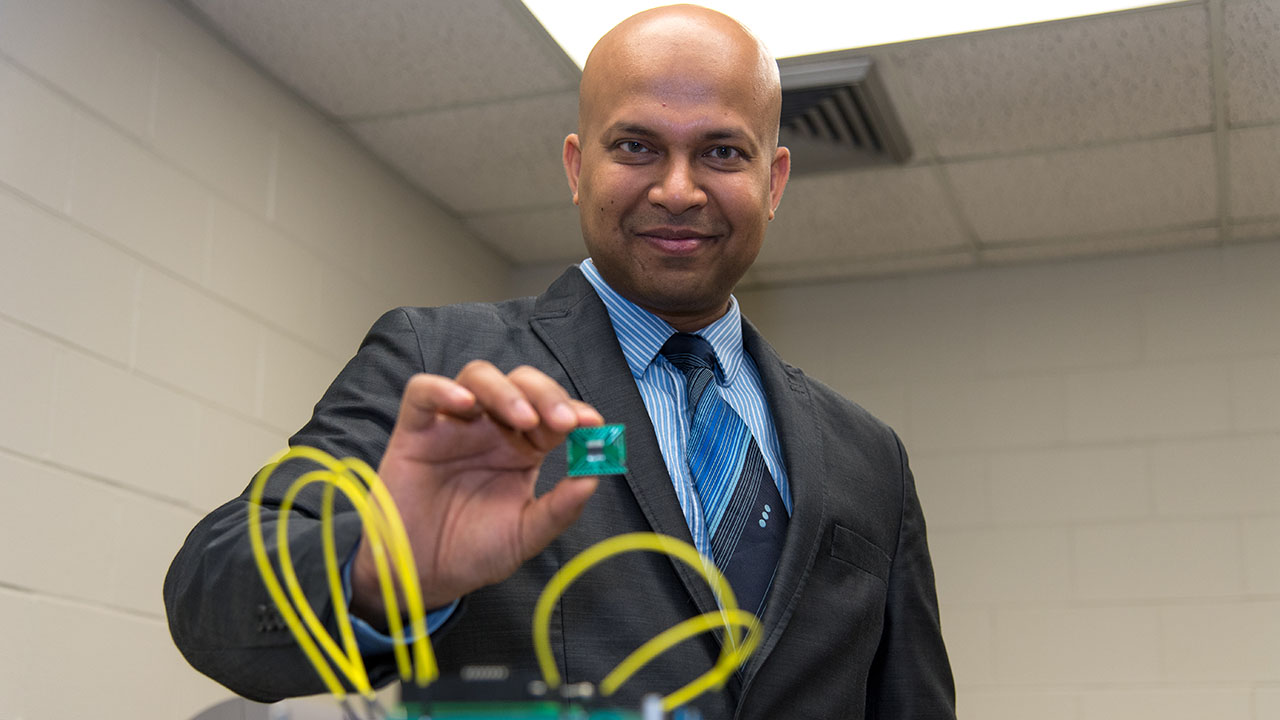Professor in ECE part of $1.8 million study to explore security solutions for semiconductor supply chains
Published: Jun 14, 2023 11:00 AM
By Joe McAdory
Rapid advancements in the semiconductor industry have enabled the broad adoption of electronics into multiple sectors of society, including commercial, industrial, and defense spaces, often improving the quality of life while increasing business efficiency.
That’s the good news.
The globalization of electronics, however, opens a Pandora’s Box of threats with untrusted products, counterfeit integrated circuits, intellectual property piracy, cloning, and other malicious modifications.
That’s the bad news.
Ujjwal Guin, assistant professor in electrical and computer engineering, has an idea that could help resolve some of these potential issues. His co-authored proposal, “Securing Semiconductor Supply Chains and Networks using Zero-Knowledge Proofs and Blockchain,” earned a $1.826 million grant from the Air Force Office of Scientific Research.
He is joined by co-PIs Prof. Bhaskar Krishnamachari from the University of Southern California and Rafael Pass from Cornell/Tel-Aviv University.
“The primary objective of this proposal is to develop novel solutions using zero-knowledge proofs and blockchain technologies to enable security in electronic hardware as well as to enable routing data securely over dynamic communication networks,” Guin said. “Our objective is to integrate zero-knowledge proofs into blockchain to address various hardware and network threats.”
Guin said zero-knowledge proofs help secure the Internet of Things and cyber-physical systems against malicious adversaries by creating zero-knowledge properties, allowing an adversary to “learn nothing.” In the meantime, zero-knowledge proof protocol “can effectively identify the adversaries with inherent properties.”
How is blockchain effective in this measure of defense?
“Blockchain technology offers a way to build a tamper-resistant ledger that cannot be modified by adversaries due to cryptographic hardness,” Guin said. “It provides the much-needed capability to trace back the origin and the complex distribution process of each electronic chip and device in this globalized microelectronic supply chain.
“Furthermore, with blockchain technology, the entry points of counterfeit electronics can be located and the malicious actors or foreign adversaries that try to tamper with America’s critical infrastructure supply chain can be identified.”
Guin said tracking of thousands of electronic devices becomes crucial for enabling supply chain integrity, managing data processing, and communications using these devices is vital to securing information over heterogeneous and dynamic networks.
“We have a lot of work ahead of us,” he said. “Remember, the groundbreaking hardware hack reported by Bloomberg in 2018 and 2021 shows that a tiny chip – no larger than a grain of rice – can be covertly placed in a larger system to infiltrate and breach data from U.S. companies. This threat continues until we can fully secure our microelectronics supply chain.”
The two-year grant is effective through May 2025.
Media Contact: , jem0040@auburn.edu, 334.844.3447


